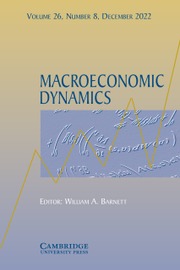Applied Healthcare Economics
A wide range of managerial challenges in healthcare, from decisions on what reimbursement levels to accept to how to deal with social determinants of health, could benefit from economic insights. This book for professionals in medical services, insurance and public healthcare emphasises intuition and common sense, making the concepts of health economics more relatable and actionable. It also challenges conventional wisdom, debunking myths and suggesting innovative solutions to industry challenges. For each problem, the book suggests actions managers should or should not take, when to seek new information, and how to interpret it. Economic analysis and research suggest novel answers to questions like whether to raise private insurer prices when Medicare cuts what it pays, when to accept a particular reimbursement offer, or how to manage patients with high-deductible insurance. The book highlights the impact on healthcare costs and efficiency of issues such as moral hazard, cost-sharing and price setting.
- Explains health care economics to managers and policy makers without an economics background
- Includes a mix of explanations of economic concepts, literature reviews, diagrams and case studies
- Each chapter connects the analysis to actionable strategies that work in the real world
Reviews & endorsements
'In his wide-ranging tour of the field of health economics, Mark Pauly packages decades of economic theory and evidence into practical insights for today's healthcare managers. Rather than telling managers what to do, he lays out the economic underpinnings of the core concepts in healthcare markets, providing managers with a framework for decision-making as well as guidance for how to manage in the face of uncertainty and imperfect information. The text provides new insights on perennial challenges in healthcare markets, including understanding the difference between cost and value, the tradeoffs facing health insurers in designing products, the challenges in organizing healthcare delivery, and how to make sense of our complex system of buying and selling pharmaceuticals. This is essential reading for the managers and policymakers whose decisions shape our healthcare system.' Kate Bundorf, J. Alexander McMahon Distinguished Professor of Health Policy and Management, Duke University
'How healthcare's leaders make decisions shouldn't be a subject of concern, because we naively assume they make key decisions based on the evidence. That is not always the case. Often leaders make decisions based on what they see others doing. Mark Pauly's Applied Healthcare Economics is written for senior leaders in the health industry. Pauly rigorously examines what health economists know about how the health system actually works and why evidence matters in healthcare management. His book is a thoughtful, unsparing, and well-reasoned plea for rational, evidence-based decision-making in healthcare.' Jeff Goldsmith, President, Health Futures, Inc.
'This book is a valuable guide for managers and policymakers seeking to understand what health economics can - and can't - tell them. It demystifies complex topics with careful analysis that engages as much as it informs.' Daniel P. Kessler, Professor of Political Economy, Stanford Graduate School of Business
'Like many in my profession, I've read, learned from, and been inspired by Mark Pauly my entire career. In Applied Healthcare Economics, Mark takes the manager's perspective to make the sometimes unexpected lessons from health economics accessible, sensible, and lively with no sacrifice of rigor.' Thomas G. McGuire, Professor of Health Economics, Harvard Medical School
Product details
November 2025Paperback
9781009606981
550 pages
244 × 170 mm
Not yet published - available from November 2025
Table of Contents
- Preface: what managers should do
- 1. Management mission impossible: my care is okay, but the system is broken
- 2. Ideal decisions with and about evidence
- 3: The managerial problem with primary care: coaching the quarterback of a team of cats
- 4. Doctors and hospitals: can we please get along?
- 5. How good can we be? How big should we be? Should we try to conquer the world?
- 6. Dancing in the dark: managing with moral hazard, adverse selection, and other information imperfections
- 7. Managing insurance and managing with insurance
- 8. Cost effectiveness and insurance coverage: messages for true believers
- 9. Value-based everything in health care: what is beyond slogans?
- 10. Pricing that violates economic law: how to learn to love price discrimination
- 11. Who is the buyer of insured medical care?
- 12. Competition, antitrust, and regulation in hospital and health care markets
- 13. Cost containment
- 14. Drugs: of golden eggs, outrage, and what to do when you don't have a clue
- 15. Social determinants of health and health spending: can health care change the world?
- 16: Conclusion: don'ts, do's and debunks from economics.







